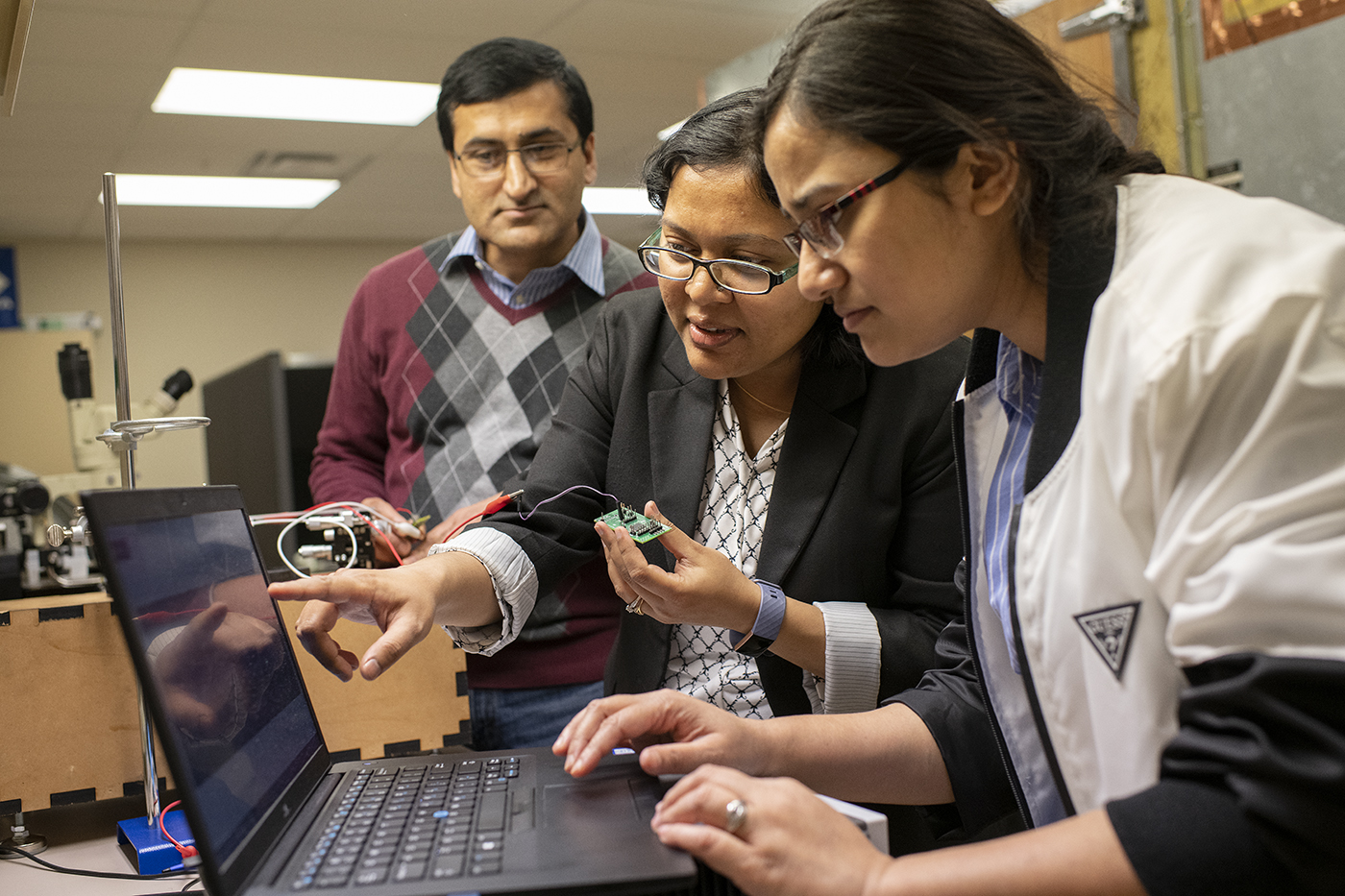Ifana Mahbub
Electrical Engineering Assistant Professor Ifana Mahbub (center) is working with Ph.D. students Pashupati Adhikari (left) and Nishat Tasneem on her electro-wetting project.
Ifana Mahbub, an assistant professor in the Electrical Engineering Department at the University of North Texas, is using the latest energy-harvesting technology to develop a wireless, wearable fitness tracker that will never need to be charged.
“Reverse electro-wetting takes advantage of motion, any motion. For my fitness tracker, that motion will come from a person moving their arms and legs. But, if you think about it, there is motion all around us,” Mahbub said. “I envision a future when biomedical devices could take advantage of the movement within an individual’s body. Imagine a pacemaker powered by electricity generated from one’s own heartbeat.”
Reverse electro-wetting works by compressing and decompressing a liquid between two plates. It is typically not considered the best method of converting kinetic energy to electrical because the power generated is very low, especially for low frequency movements such as walking. However, as part of this project, Mahbub is taking advantage of the high surface area created by using porous plates and developing a miniaturized integrated circuit that could increase the amount of power available by 50 times, more than enough to power a small, mobile device or sensor.
“I believe the reverse electro-wetting concept, like other sustainable energy-harvesting methods, will play a key role in the future of mobile devices,” Mahbub said. “And, it is especially important to people, like me, who never remember to charge their Fitbit.”
Russell Reid, an assistant professor of mechanical engineering at Dixie State University in St. George, Utah, joins Mahbub as a co-principal investigator on the project. He will assist in making prototypes and test fixtures as well as advise on mechanical engineering issues.
This project will provide sponsorship for an undergraduate senior design team as well as energy-harvesting and circuit-design experiences for UNT’s College of Engineering summer camp for K-12 youth.





